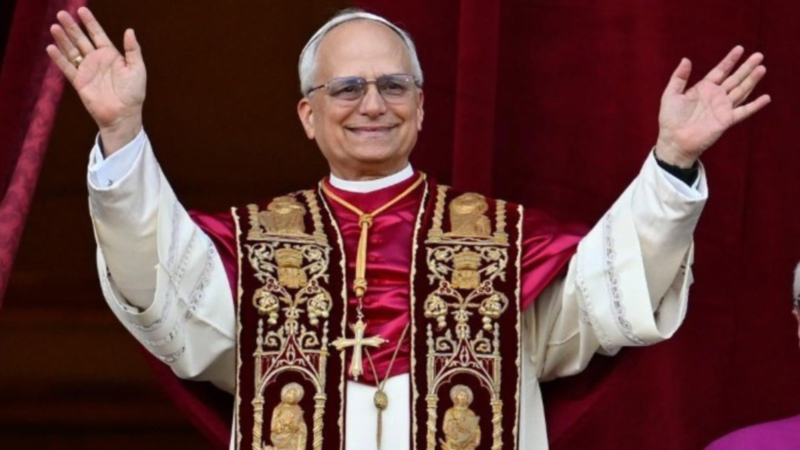As the world navigates the artificial intelligence (AI) terrain, Pope Leo XIV has stressed the importance of the technology upholding human dignity and freedom.
In a message to participants at the AI for Good Summit 2025, organised by the International Telecommunication Union (ITU), in partnership with other United Nations agencies and co-hosted by the Swiss Government, Pope Leo noted that connecting the human family from the telegraph to radio, telephone, digital and space communications presents challenges, particularly in rural and low-income areas, where approximately 2.6 billion persons still lack access to communication technologies.
He said humanity is at a crossroads, facing the immense potential generated by the digital revolution driven by AI. He said the impact of this revolution is far-reaching, transforming areas such as education, work, art, healthcare, governance, the military, and communication.
Pope said this epochal transformation requires responsibility and discernment to ensure that AI is developed and utilized for the common good, building bridges of dialogue and fostering fraternity, and ensuring it serves the interests of humanity.
“As AI becomes capable of adapting autonomously to many situations by making purely technical algorithmic choices, it is crucial to consider its anthropological and ethical implications, the values at stake and the duties and regulatory frameworks required to uphold those values. While AI can simulate aspects of human reasoning and perform specific tasks with incredible speed and efficiency, it cannot replicate moral discernment or the ability to form genuine relationships.
“Therefore, the development of such technological advancements must go hand in hand with respect for human and social values, the capacity to judge with a clear conscience, and growth in human responsibility. It is no coincidence that this era of profound innovation has prompted many to reflect on what it means to be human, and on humanity’s role in the world,” he stressed.
Pope, whose message was read by Secretary of State of His Holiness, Card. Pietro Parolin, said although responsibility for the ethical use of AI systems begins with those who develop, manage and oversee them, he said those who use them also share in this responsibility.
“AI therefore requires proper ethical management and regulatory frameworks centred on the human person, and which go beyond the mere criteria of utility or efficiency.
“Ultimately, we must never lose sight of the common goal of contributing to that “tranquillitas ordinis – the tranquility of order”, as Saint Augustine called it (De Civitate Dei) and of fostering a more humane order of social relations, and peaceful and just societies in the service of integral human development and the good of the human family,” he stated.
Pope used the opportunity to encourage the world to seek ethical clarity and to establish a coordinated local and global governance of AI, based on the shared recognition of the inherent dignity and fundamental freedoms of the human person.


